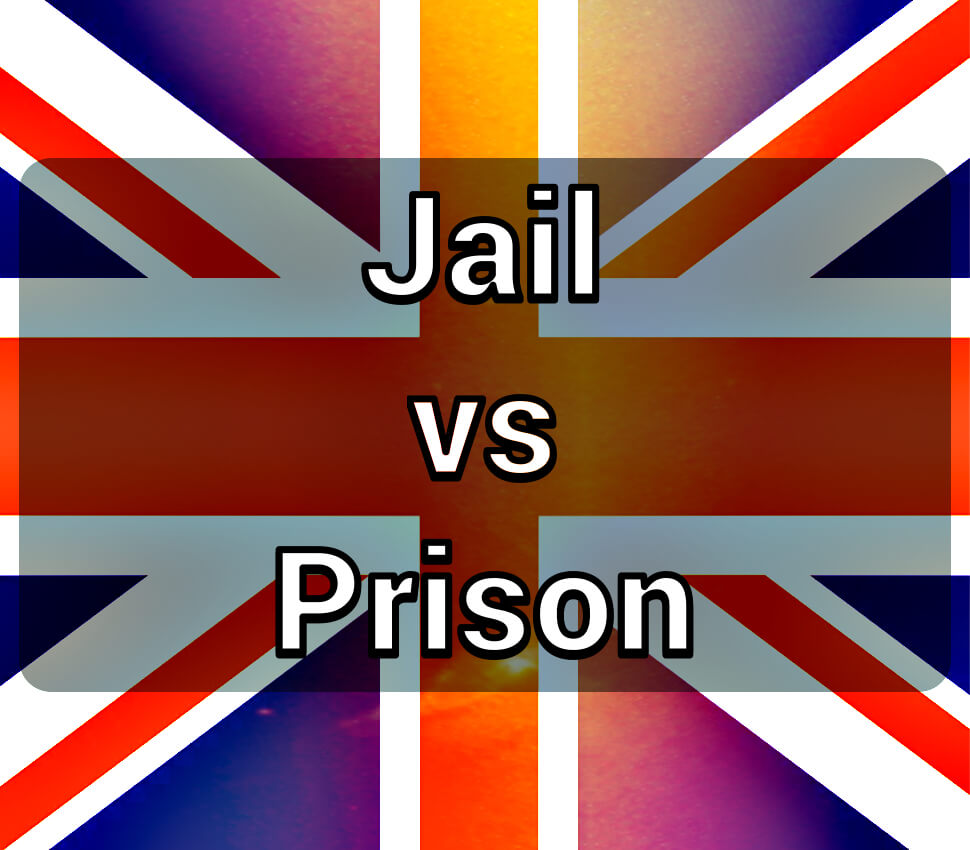What’s the difference between “jail” and “prison”?
Why do we sometimes say that someone is “in jail”, but then also say that they are “in prison”?
This is a very interesting question that I will answer in this article.
To read more, read on.
Jail

Jails are facilities intended for short-term imprisonment.
For example, someone who is awaiting their trail or sentencing would technically be “in jail” rather than “in prison”.
Furthermore, if a person is sentenced for a short time (for example, 1 year) they will most likely go to jail.
Because a lot of jails are found within police stations and/or near various court complexes, they tend to be a lot smaller in size than prisons.
Prison

Prisons are facilities intended for long-term imprisonment.
Think of someone guilty of a very serious offence. They will most likely go to prison.
Prisons are typically a lot bigger than jails and have varying levels of security (for example, low-security prisons and high-security prisons).
Usage
Now that you know the main differences between jails and prisons, let’s talk about the usage.
The short explanation is that both “jail” and “prison” are used interchangeably.
They are used to mean one of the two things: a person is under arrest, or they are serving a sentence as punishment for a crime.
Although jails and prisons are two very different places with their own purpose, functions, rules, etc, most people do not usually pay attention to those differences.
In everyday speech and writing, they are used to mean the same thing.
|
|
|
|
|



Leave a Comment